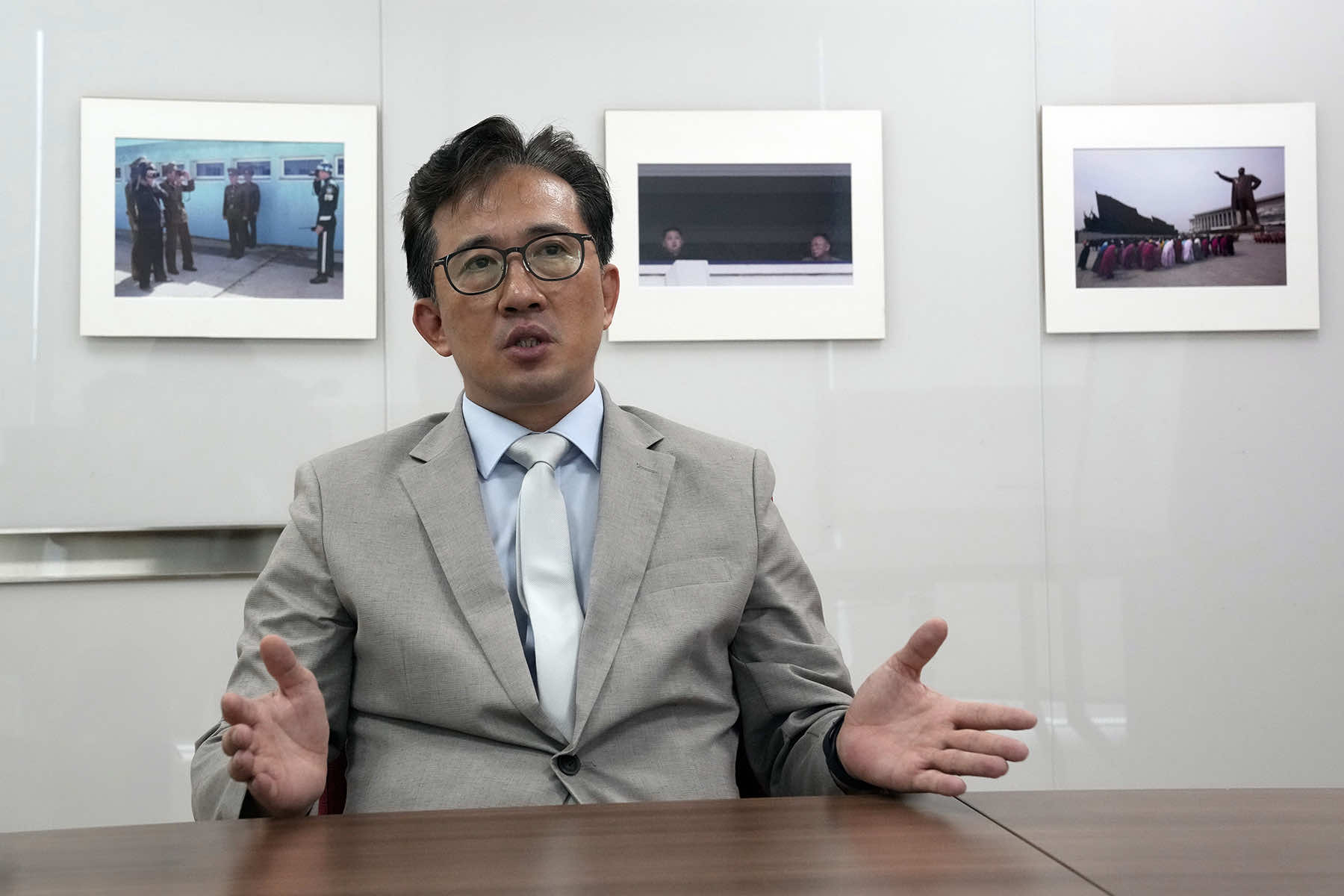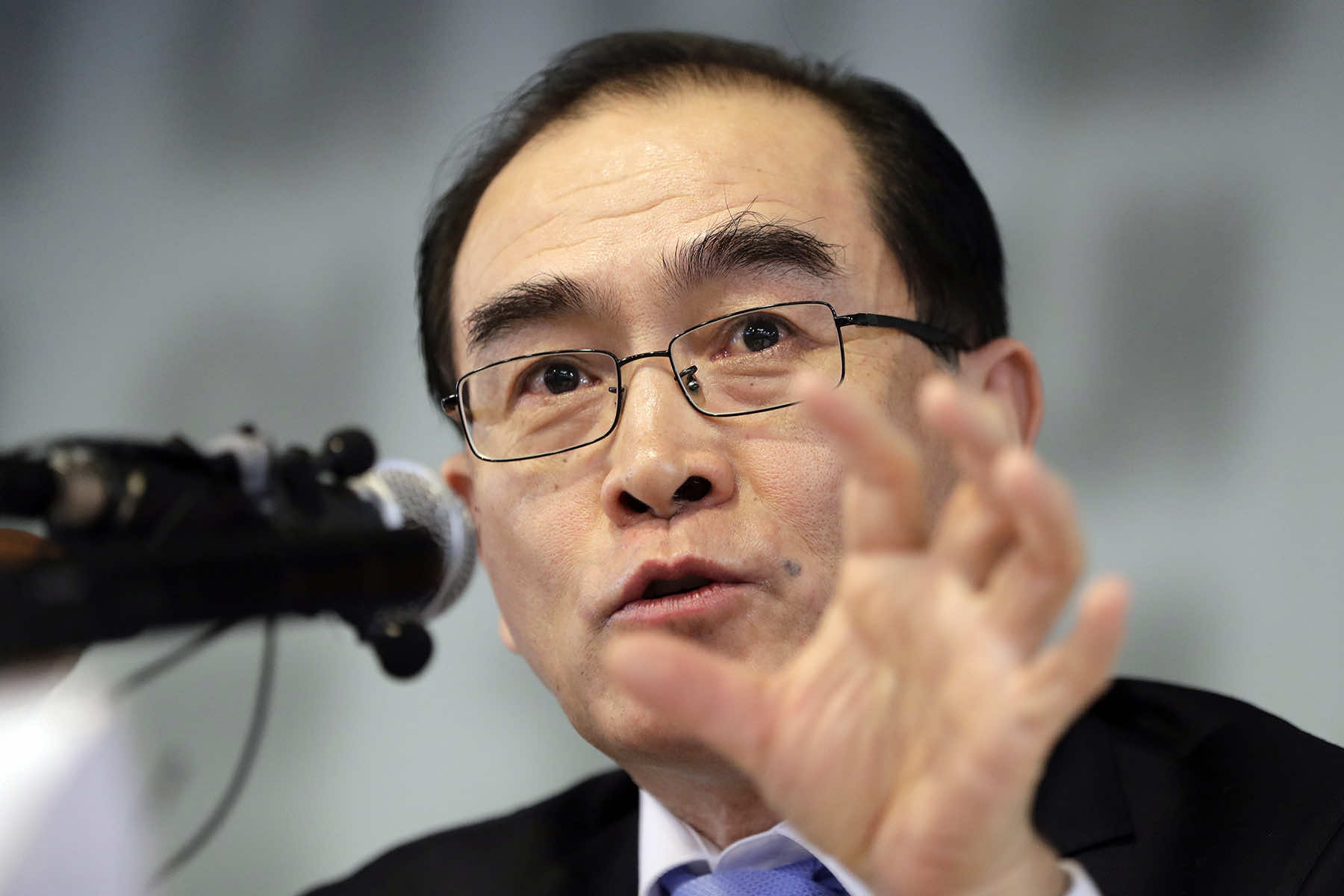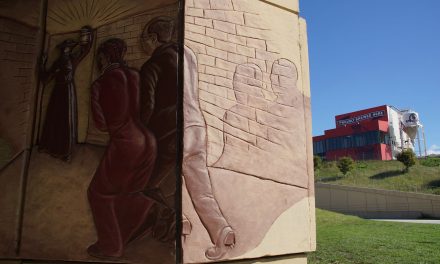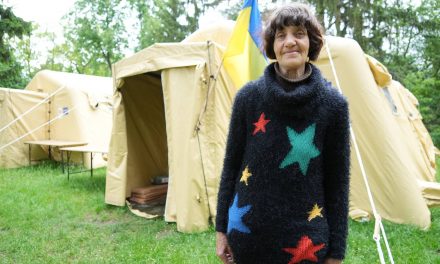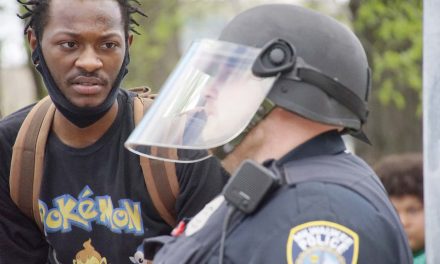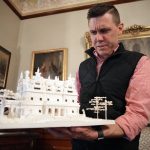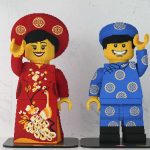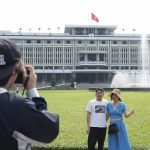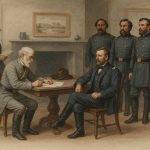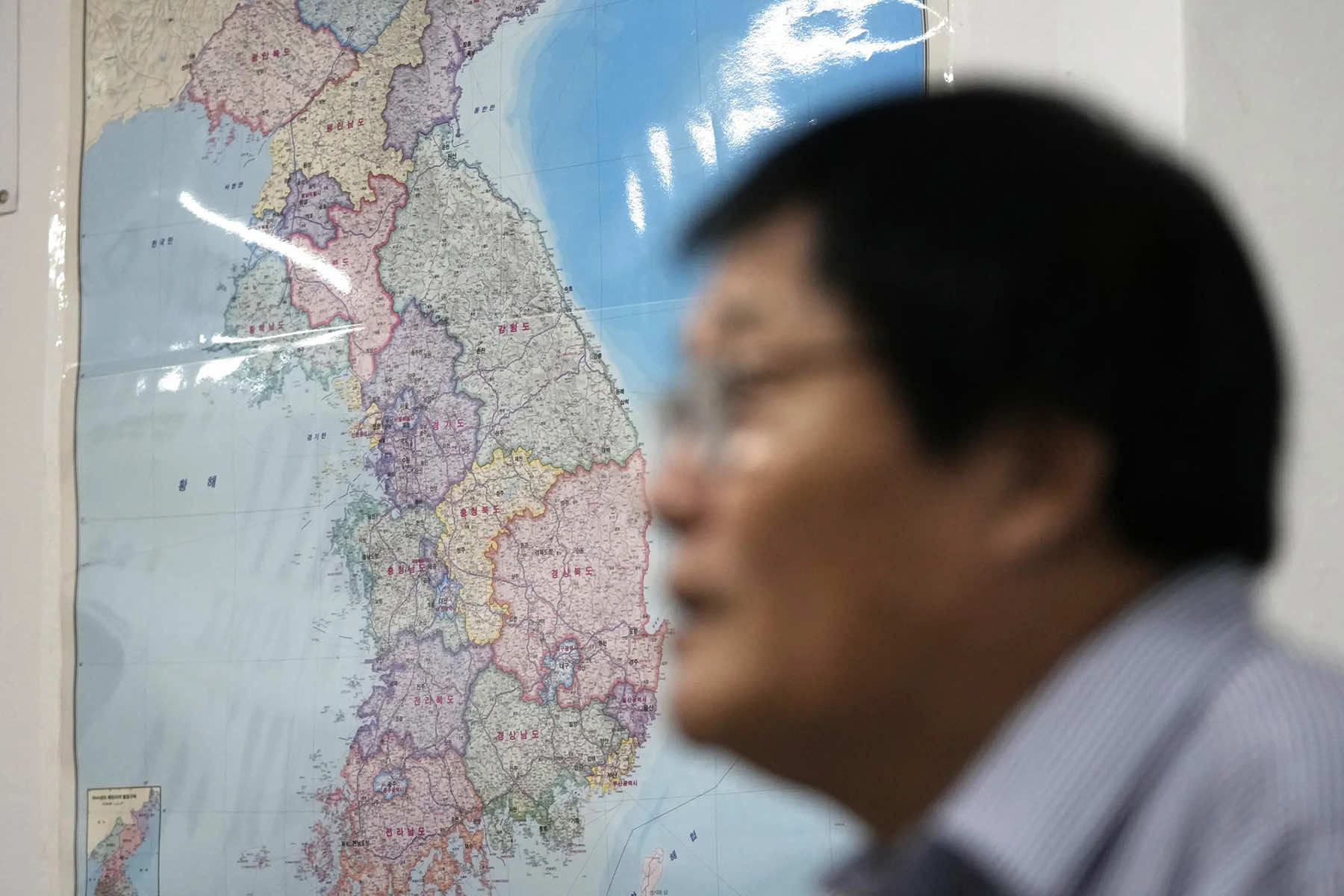
Few stories are as harrowing and captivating as those told by North Korean defectors. Their testimonies provide a rare glimpse into one of the most secretive and repressive regimes in the world. But as a journalist, getting permission to interview a North Korean defector is almost impossible.
When defectors speak with American journalists, they share a wide scope of experiences that range from everyday life under totalitarian rule to their perilous journey to freedom.
About 34,000 North Koreans have defected to South Korea to avoid economic hardship and political suppression, mostly since the late 1990s. A majority of them are women from the North’s poorer and more distant regions.
But the number of highly educated North Korean men, who have professional work experience, escaping to South Korea has steadily increased in recent years. In 2023, about 10 North Koreans categorized as members of the country’s elite resettled in South Korea — more than at any other time, according to South Korea’s Unification Ministry.
Ministry officials have said that an increase in high-level defections was likely caused by North Korea’s pandemic-related economic difficulties, and its push to reinforce state control of its people. Those who had to stay abroad longer than initially scheduled, due to COVID-19 travel restrictions, were exposed to freer foreign cultures for an extended period.
In July, South Korea’s spy agency, the National Intelligence Service, announced that a senior North Korean diplomat based in Cuba had fled to South Korea in November 2023. Ri Il Kyu escaped with his wife and children in yet another defection by members of Kim Jong Un’s ruling elite.
“The high-level defection adds insult to injury for North Korea, as Ri was instrumental in representing Pyongyang’s interests in Havana,” said Leif-Eric Easley, professor of international studies at Ewha Womans University in Seoul. “The Kim regime is no doubt taking measures to make it more difficult for diplomats overseas to defect, but increased repression is likely to further isolate Pyongyang and may actually encourage more defections.”
Moon Seong Mook, an expert with the Seoul-based Korea Research Institute for National Strategy, said news of high-level defections like Ri’s would spread to North Korean diplomats and others, potentially dealing a big blow to Kim. However, it would not likely lead to a regime collapse anytime soon.
The most high-profile defection in recent years happened in 2016, when Tae Yongho, then a minister at the North Korean Embassy in London, arrived in South Korea. He said that he decided to flee because he did not want his children to live “miserable” lives in North Korea. He also fell into “despair” over Kim’s execution of other government officials, and his dangerous expansion of the nuclear weapons program.
One of the most frequently discussed topics in interviews with North Korean defectors is the daily struggle for survival. Defectors often recount tales of severe food shortages, malnutrition, and the constant quest for sustenance. Many describe a childhood marked by hunger, where meals were scarce and families had to forage for wild plants or barter for food on the black market, known as the “Jangmadang.”
The stories of famine during the 1990s, which claimed millions of lives, are particularly haunting. Defectors have shared memories of seeing their friends and neighbors starve to death, and the extreme measures people took to survive. The government’s strict control over resources and the prioritization of the military exacerbated these hardships, leaving ordinary citizens to fend for themselves.
Another common story shared by defectors is the pervasive propaganda and indoctrination they experienced from a young age. North Korean children are taught to revere the Kim family as divine figures. The education system, media, and cultural institutions all serve to reinforce the regime’s ideology, portraying the outside world, especially the United States and South Korea, as hostile and inferior.
Defectors often describe the psychological impact of this indoctrination. Many grew up genuinely believing the regime’s narrative until they were exposed to outside information. This awakening usually came through foreign media smuggled into the country, such as South Korean dramas or American movies, which revealed a starkly different reality from the one portrayed by the regime.
The brutal repression and human rights abuses perpetrated by the North Korean government are central to many defectors’ stories. When news organizations are granted access to conduct interviews, the stories often reveal the harsh punishments meted out for even minor infractions. Public executions, labor camps, and torture are common experiences for those who fall afoul of the regime.
Life in the prison camps, where starvation, forced labor, and abuse are rampant, has been described as a living death. These camps, which hold political prisoners and their families, are designed to instill fear and ensure absolute obedience to the state. The mere suspicion of dissent can result in an entire family being sent to these camps, where survival is a daily battle.
The journey to freedom is one of the most compelling aspects of stories by defectors. Escaping North Korea is a perilous endeavor, fraught with risks at every turn. Defectors often describe the initial challenge of crossing the heavily fortified border into China. The border is patrolled by guards with orders to shoot on sight, making the crossing extremely dangerous.
Once in China, defectors face a different set of challenges. The Chinese government does not recognize them as refugees and routinely deports them back to North Korea, where they face severe punishment. To avoid capture, defectors must navigate through an underground network of safe houses and sympathetic individuals, often referred to as the “Underground Railroad.”
The journey often involves passing through several countries, each with its own risks and challenges, before reaching a place of safety such as South Korea or a Western country. The process can take years and requires immense courage and determination. Defectors frequently speak of the fear, uncertainty, and hardships they endured along the way.
Adjusting to life in the outside world presents its own set of challenges for defectors. Interviews often highlight the cultural shock and the difficulties of integrating into a new society. Despite the relative freedom and opportunities available in countries like South Korea or the United States, defectors often struggle with feelings of isolation and alienation.
The language barrier is a significant obstacle, as is the need to adapt to a drastically different way of life. Many defectors express a sense of guilt and anxiety about the family members they left behind, who may face severe repercussions due to their defection. Psychological trauma from their experiences in North Korea and the arduous escape journey further complicates their adjustment.
The restrictions on North Korean defectors giving interviews to American journalists also comes as a result of several factors, including national security risks and the potential for them to be targeted.
National Security Concerns: Information shared by defectors might reveal sensitive details about their escape routes, the operations of underground networks, and the security measures of countries that assist them. Publicly sharing such information could compromise ongoing operations and the safety of other defectors and activists.
Protection of Defectors: Defectors are often at risk of retaliation from North Korean authorities. Their families and acquaintances still in North Korea might also face severe punishment. Limiting their public exposure can help protect both the defectors and their families from potential retribution.
Psychological and Emotional Well-being: Many defectors have endured severe trauma and hardship. Public interviews can be stressful and might lead to psychological distress. Authorities and support organizations often prioritize their mental health and overall well-being, which can be adversely affected by intense media scrutiny.
Political Sensitivities: The relationship between North Korea and other countries, including South Korea and the United States, is highly sensitive. Interviews with defectors can sometimes escalate tensions or be used for political purposes, which might not align with the defectors’ best interests or those of the countries involved.
Control Over Narrative: Some governments and organizations prefer to control the narrative around defection to avoid sensationalism or misinformation. This helps in presenting a more accurate and responsible portrayal of the issues related to North Korea.
In conversations with American journalists, defectors often acknowledge the crucial role of advocacy and support organizations. These groups provide essential assistance during the escape process and help defectors adjust to their new lives.
Despite the immense challenges they face, when defectors do speak to the international media they often express a deep sense of hope. Many are driven by a desire to raise awareness about the plight of those still in North Korea and to advocate for human rights and freedom.
Defectors often say they dream of a future where they can return to their homeland and reunite with their families in a free and democratic society. That is why they tend to be advocates for reunification, and the hope that one day North Korea will be free from oppression.
MI Staff (Korea), with Hyung-Jin Kim
Lee Jin-man (AP), Ahn Young-joon (AP), Choi Jin-suk (AP), and Chisato Tanaka (AP)
- Exploring Korea: Stories from Milwaukee to the DMZ and across a divided peninsula
- A pawn of history: How the Great Power struggle to control Korea set the stage for its civil war
- Names for Korea: The evolution of English words used for its identity from Gojoseon to Daehan Minguk
- SeonJoo So Oh: Living her dream of creating a "folded paper" bridge between Milwaukee and Korean culture
- A Cultural Bridge: Why Milwaukee needs to invest in a Museum that celebrates Korean art and history
- Korean diplomat joins Milwaukee's Korean American community in celebration of 79th Liberation Day
- John T. Chisholm: Standing guard along the volatile Korean DMZ at the end of the Cold War
- Most Dangerous Game: The golf course where U.S. soldiers play surrounded by North Korean snipers
- Triumph and Tragedy: How the 1988 Seoul Olympics became a battleground for Cold War politics
- Dan Odya: The challenges of serving at the Korean Demilitarized Zone during the Vietnam War
- The Korean Demilitarized Zone: A border between peace and war that also cuts across hearts and history
- The Korean DMZ Conflict: A forgotten "Second Chapter" of America's "Forgotten War"
- Dick Cavalco: A life shaped by service but also silence for 65 years about the Korean War
- Overshadowed by conflict: Why the Korean War still struggles for recognition and remembrance
- Wisconsin's Korean War Memorial stands as a timeless tribute to a generation of "forgotten" veterans
- Glenn Dohrmann: The extraordinary journey from an orphaned farm boy to a highly decorated hero
- The fight for Hill 266: Glenn Dohrmann recalls one of the Korean War's most fierce battles
- Frozen in time: Rare photos from a side of the Korean War that most families in Milwaukee never saw
- Jessica Boling: The emotional journey from an American adoption to reclaiming her Korean identity
- A deportation story: When South Korea was forced to confront its adoption industry's history of abuse
- South Korea faces severe population decline amid growing burdens on marriage and parenthood
- Emma Daisy Gertel: Why finding comfort with the "in-between space" as a Korean adoptee is a superpower
- The Soul of Seoul: A photographic look at the dynamic streets and urban layers of a megacity
- The Creation of Hangul: A linguistic masterpiece designed by King Sejong to increase Korean literacy
- Rick Wood: Veteran Milwaukee photojournalist reflects on his rare trip to reclusive North Korea
- Dynastic Rule: Personality cult of Kim Jong Un expands as North Koreans wear his pins to show total loyalty
- South Korea formalizes nuclear deterrent strategy with U.S. as North Korea aims to boost atomic arsenal
- Tea with Jin: A rare conversation with a North Korean defector living a happier life in Seoul
- Journalism and Statecraft: Why it is complicated for foreign press to interview a North Korean defector
- Inside North Korea’s Isolation: A decade of images show rare views of life around Pyongyang
- Karyn Althoff Roelke: How Honor Flights remind Korean War veterans that they are not forgotten
- Letters from North Korea: How Milwaukee County Historical Society preserves stories from war veterans
- A Cold War Secret: Graves discovered of Russian pilots who flew MiG jets for North Korea during Korean War
- Heechang Kang: How a Korean American pastor balances tradition and integration at church
- Faith and Heritage: A Pew Research Center's perspective on Korean American Christians in Milwaukee
- Landmark legal verdict by South Korea's top court opens the door to some rights for same-sex couples
- Kenny Yoo: How the adversities of dyslexia and the war in Afghanistan fueled his success as a photojournalist
- Walking between two worlds: The complex dynamics of code-switching among Korean Americans
- A look back at Kamala Harris in South Korea as U.S. looks ahead to more provocations by North Korea
- Jason S. Yi: Feeling at peace with the duality of being both an American and a Korean in Milwaukee
- The Zainichi experience: Second season of “Pachinko” examines the hardships of ethnic Koreans in Japan
- Shadows of History: South Korea's lingering struggle for justice over "Comfort Women"
- Christopher Michael Doll: An unexpected life in South Korea and its cross-cultural intersections
- Korea in 1895: How UW-Milwaukee's AGSL protects the historic treasures of Kim Jeong-ho and George C. Foulk
- "Ink. Brush. Paper." Exhibit: Korean Sumukhwa art highlights women’s empowerment in Milwaukee
- Christopher Wing: The cultural bonds between Milwaukee and Changwon built by brewing beer
- Halloween Crowd Crush: A solemn remembrance of the Itaewon tragedy after two years of mourning
- Forgotten Victims: How panic and paranoia led to a massacre of refugees at the No Gun Ri Bridge
- Kyoung Ae Cho: How embracing Korean heritage and uniting cultures started with her own name
- Complexities of Identity: When being from North Korea does not mean being North Korean
- A fragile peace: Tensions simmer at DMZ as North Korean soldiers cross into the South multiple times
- Byung-Il Choi: A lifelong dedication to medicine began with the kindness of U.S. soldiers to a child of war
- Restoring Harmony: South Korea's long search to reclaim its identity from Japanese occupation
- Sado gold mine gains UNESCO status after Tokyo pledges to exhibit WWII trauma of Korean laborers
- The Heartbeat of K-Pop: How Tina Melk's passion for Korean music inspired a utopia for others to share
- K-pop Revolution: The Korean cultural phenomenon that captivated a growing audience in Milwaukee
- Artifacts from BTS and LE SSERAFIM featured at Grammy Museum exhibit put K-pop fashion in the spotlight
- Hyunjoo Han: The unconventional path from a Korean village to Milwaukee’s multicultural landscape
- The Battle of Restraint: How nuclear weapons almost redefined warfare on the Korean peninsula
- Rejection of peace: Why North Korea's increasing hostility to the South was inevitable
- WonWoo Chung: Navigating life, faith, and identity between cultures in Milwaukee and Seoul
- Korean Landmarks: A visual tour of heritage sites from the Silla and Joseon Dynasties
- South Korea’s Digital Nomad Visa offers a global gateway for Milwaukee’s young professionals
- Forgotten Gando: Why the autonomous Korean territory within China remains a footnote in history
- A game of maps: How China prepared to steal Korean history to prevent reunification
- From Taiwan to Korea: When Mao Zedong shifted China’s priority amid Soviet and American pressures
- Hoyoon Min: Putting his future on hold in Milwaukee to serve in his homeland's military
- A long journey home: Robert P. Raess laid to rest in Wisconsin after being MIA in Korean War for 70 years
- Existential threats: A cost of living in Seoul comes with being in range of North Korea's artillery
- Jinseon Kim: A Seoulite's creative adventure recording the city’s legacy and allure through art
- A subway journey: Exploring Euljiro in illustrations and by foot on Line 2 with artist Jinseon Kim
- Seoul Searching: Revisiting the first film to explore the experiences of Korean adoptees and diaspora





